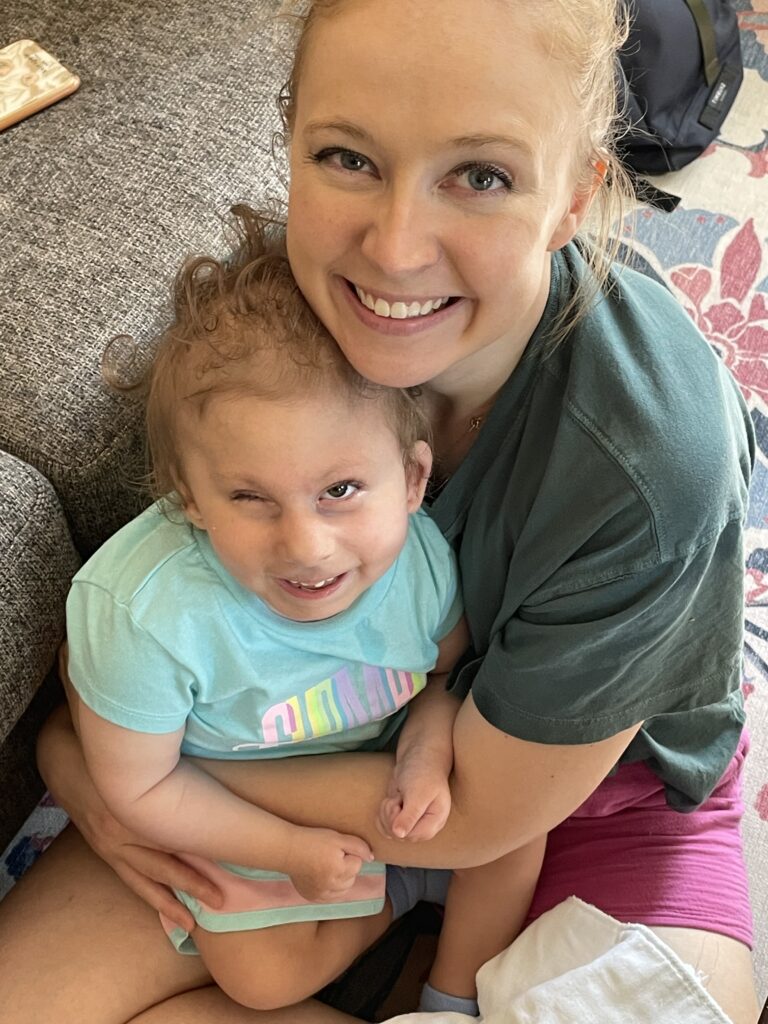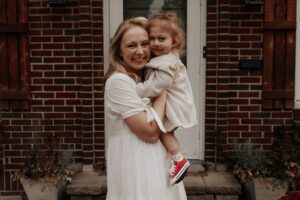Three years. It’s been three years since learning Eloise’s diagnosis. I’ve learned that I shut down emotionally after something big. I go numb. I’m there, but I’m not there. Sometimes this feeling lasts days, sometimes it lasts for months. There are major events from Eloise’s life that just sort of exist in my brain. I know they happened, but if you asked me about them, my face would likely go blank and I’d give you an unemotional response to an emotional situation – Eloise’s diagnosis, her birth, the beginning of this year all fall under this category.
It’s not only major events. There are situations that lurk around in my brain, too. Yes, lurk is the appropriate verb because the situations feel intrusive. A lot of it is medical. It’s doing the dishes and hearing a phantom monitor go off. I was washing the dishes the first time Eloise had a bad apneic episode at home. It’s the sudden image of the carpet squares in the surgery waiting room at our children’s hospital because, let’s face it, I’ve stared at them a lot. The pattern and colors are so ingrained that I could probably draw one from memory. It’s hearing the nurse’s voice when she yelled for help. It’s hearing the nurse’s voice when he mocked me, saying that I’m just a mom who feels the need to talk too much and have control. It’s picturing the doctor’s sad eyes. It’s feeling myself take the same sharp breath the doctor takes before delivering bad news.
My body knows when July 1 is coming. I think I started feeling the weight of this day at the beginning of June. I feel it physically, but I also get a lot of flashbacks of traumatic events and situations. It’s as if my brain flips on a trauma switch and then fires my worst memories at me. The memory canon fires at inopportune times like when I’m walking to work, playing with Eloise, or taking a shower. Sometimes I wonder when I’ll be past these memories. Not get past but be past. I have this idea that if I push a feeling down far enough, it will disappear. I get down on myself because, I don’t know, I believe there should be a point when things don’t feel so heavy? But then I ask myself how will I feel lighter if I’m unwilling to feel the heavy stuff? I wonder if my traumatic memories are just going to be replaced by more traumatic memories? Because that’s my fear.
My survival technique of going numb has allowed me to do just that – survive. However, it has also resulted in some major delayed processing, which I think contributes to the flood of feelings and memories before significant dates. I can only numb out for so long before my body and mind force me to feel. Just within the past year, I’ve been able to process a lot of what happened after I learned Eloise’s diagnosis. Each year I’m able to get a little bit more of the experience out of my head and on paper. As I write it on paper, I feel. I feel the physical stuff. My stomach hurts, and I get a headache. I cry. I grieve my innocence and naivety. I get angry and sad, but I also feel lighter.
In the coming weeks, I plan to share more details about receiving Eloise’s diagnosis, what the second half of my pregnancy was like, and her birth. I have never written about these experiences chronologically. I’ve shared tidbits here and there, but I always hit an emotional wall and stop. Shortly after receiving Eloise’s diagnosis, I wanted to find another mom who had walked through something similar. I searched online for blogs, and my search came up short. I read through more medical journals and articles than personal experiences… talk about disheartening.
I recognize that it’s been three years. I can’t remember everything. But I think the gap in time offers a different perspective. I’m able to look back and give myself grace. I feel proud of myself.


